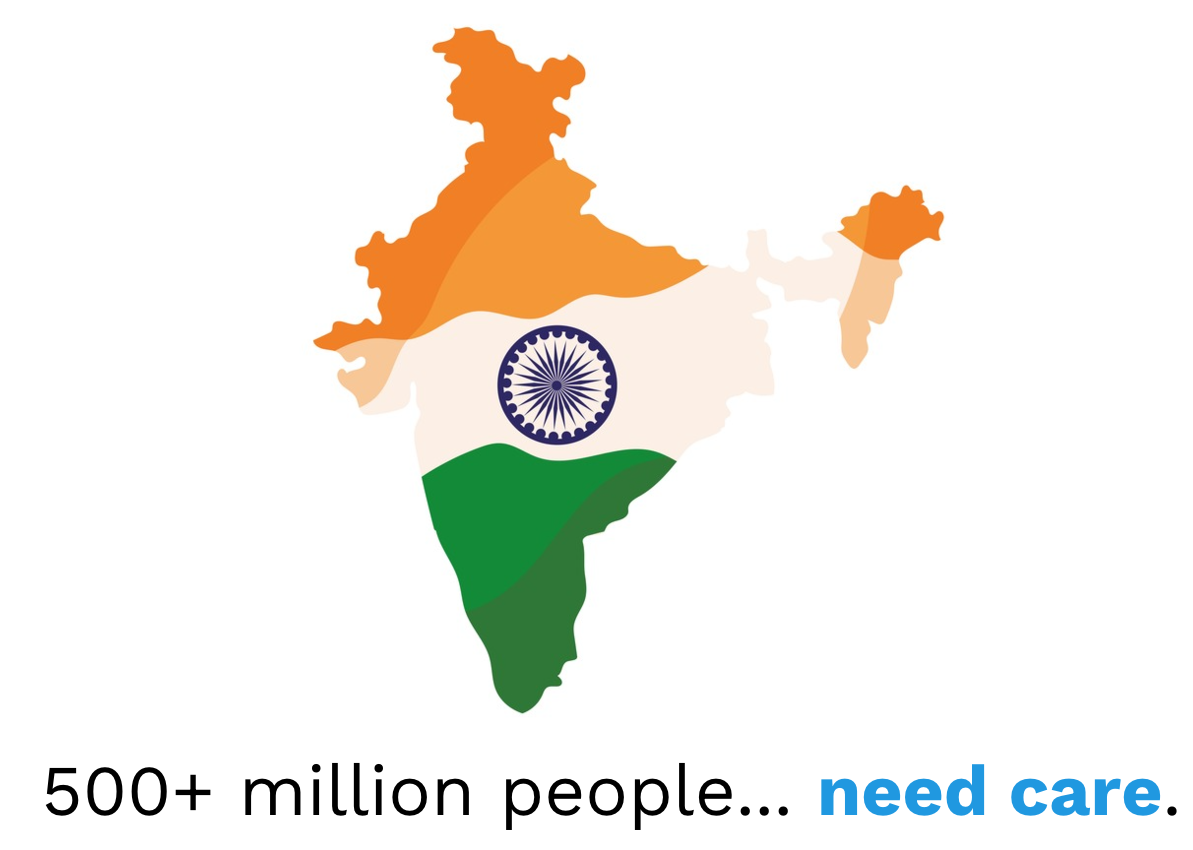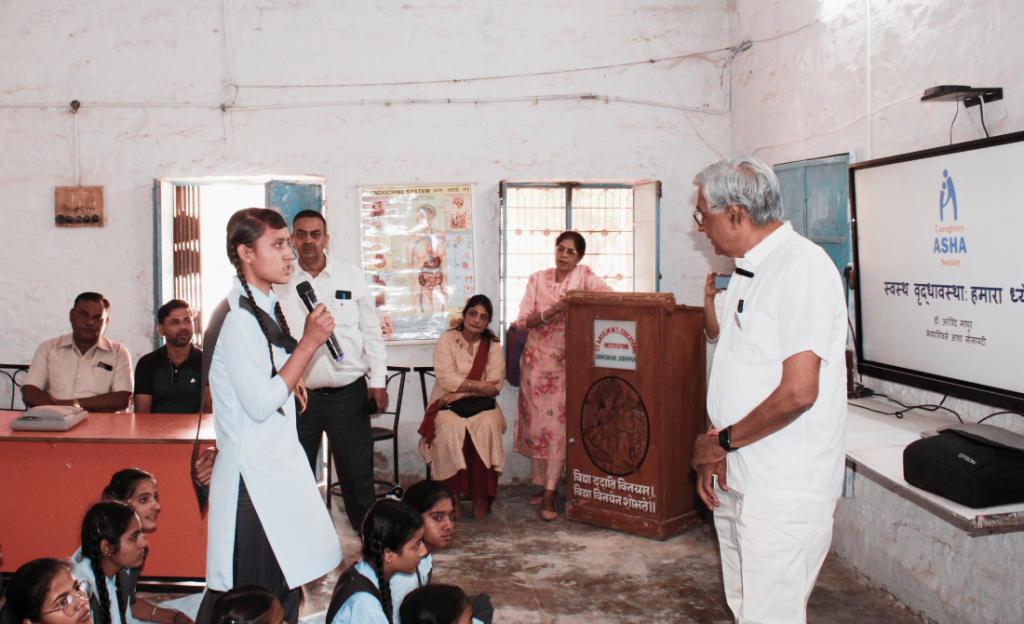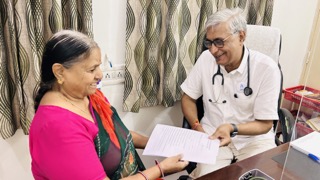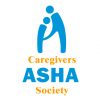
Caregivers Asha Society collaborates with individuals, schools, government organizations, and corporations to raise awareness about caregiving and to educate and empower caregivers, thereby enhancing the quality and impact of care work.
At Caregivers Asha Society, we’re committed to empowering caregivers and the individuals they support. We provide tools, resources, and community connections to ensure caregivers feel equipped and valued as they navigate the complex journey of care. Whether you’re caring for an elderly parent, a child with special needs, or a loved one with a chronic illness, we are here to make your caregiving responsibilities more manageable and less isolating.
The challenge we face
India’s demographic landscape is expected to change between 2020 to 2050, necessitating more elderly care alongside continuing levels of childcare. A recent study from the United Nations Population Fund finds that as of 2022, about 25% of India’s population is between the ages of 0-14 years, and 10.5% is above 60 years, i.e. about 360 million children and 147 million elderly persons require care.
Caregiving impacts millions of lives—yet the challenges faced by caregivers remain largely unaddressed. Many caregivers must balance their roles alongside jobs, personal obligations, and their own health. Caregivers for diverse audiences, such as aging parents, individuals with disabilities, or those recovering from illness or injury, often find themselves without sufficient guidance or support systems. This can lead to burnout, emotional distress, and financial strain, leaving caregivers overwhelmed and unsupported.

Caregiving comes with immense demands
, often resulting in stress, emotional challenges, and financial pressures for those who provide care.
Our approach
We engage in community-based research to assess caregiver needs and identify ways to alleviate the stresses and burdens of family caregiving to ensure caregivers from all walks of life and background have the resources they need to thrive. Through advocacy efforts, we amplify caregivers’ voices in policy-making and public awareness initiatives, driving meaningful change for their well-being.
We have launched the CareAsha App which is a FREE comprehensive educational platform offering caregivers practical resources, and expert advice to enhance care quality while promoting self-care & mental well being. We invite everyone to participate in a supportive community to help each other and other caregivers share knowledge and experiences.
We are establishing the Asha Care Skill Institute with a focus on skill development and training professionals in long-term care for older adults, aiming to enhance care quality and build a skilled, compassionate workforce.
Our programs

Future Caregivers Initiative
The initiative offers mentorship, resources for further education, and netwoking opportunities to help students succeed in caregiving roles. By investing in the next generation of caregivers, we emphasise empathy, commuication, and practical skills, setting a high standard for caregiver education. This program aims to positively impact both students and the individuals they eventually care for.

Home Based Caregiver Training Program
Our family caregiving training programs are designed with care and intention to empower caregivers through education, skills training, and community support. We actively involve caregivers in shaping our programs by soliciting their input through advisory boards, focus groups, and open communication channels.
Their diverse perspectives and experiences guide us in providing culturally competent, gender-sensitive training tailored to their specific needs. Through interactive workshops and ongoing guidance, we empower caregivers to master the art of caregiving.
Participants gain practical know-how to assist with daily activities like bathing, dressing, and medication management—preventing common issues like bedsores and falls. We coach communication techniques to effectively partner with healthcare providers.

Free Medical Camps
We organise medical camps for older people. We conduct comprehensive health screenings using the World Health Organization’s ICOPE tool, including assessments of vision, hearing, cognitive function, and mobility.


